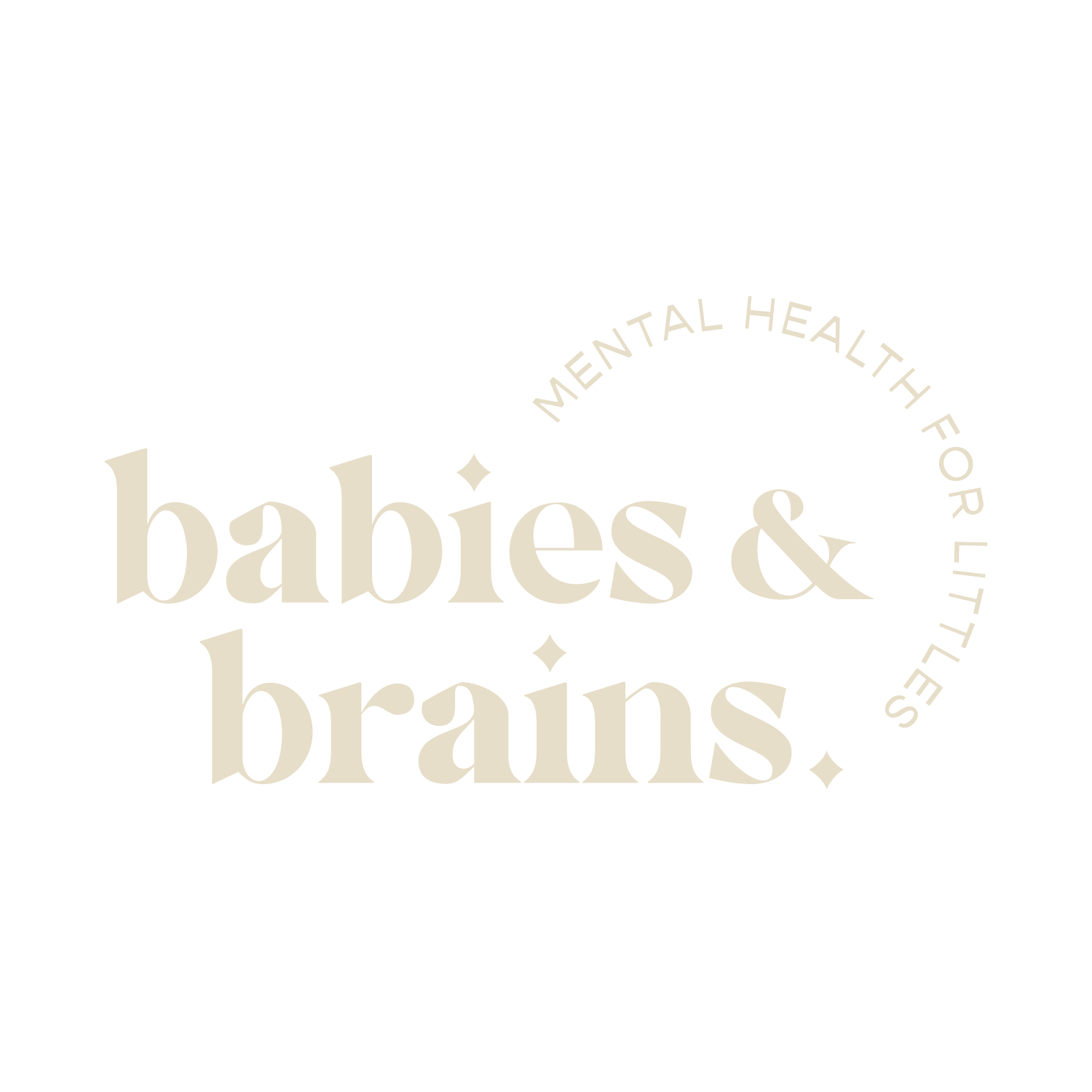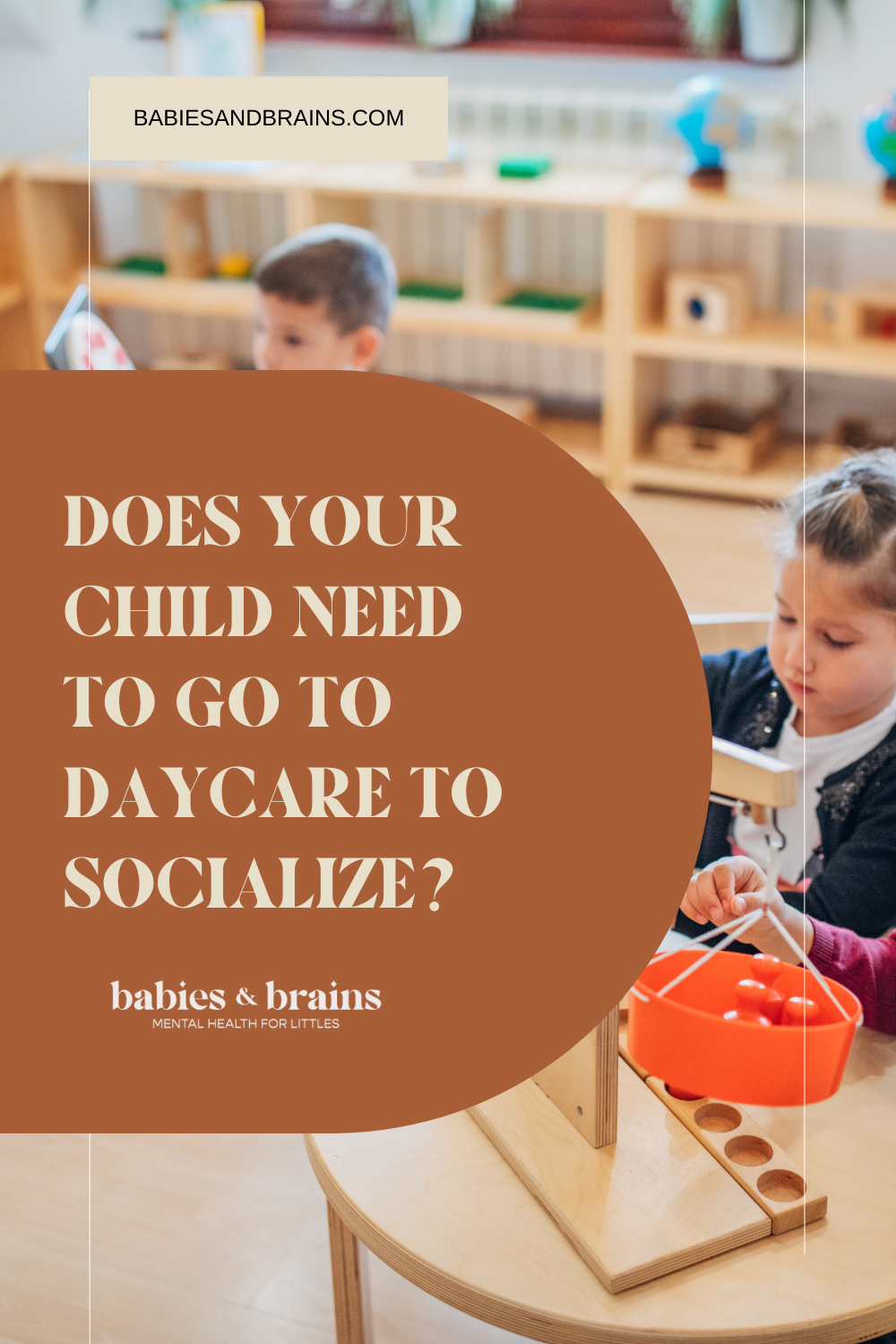Is Daycare Necessary for Social Development?
Your mother-in-law, pediatrician, best friend, grandmother, etc., told you, “You better put your baby into daycare so they can learn social skills,” and now you’re wondering, Have I done my baby a disservice by keeping them home with me?
This is such a misinformed suggestion, and unfortunately, it’s a popular one. I cannot tell you how many parents have written in to me to ask if they have done a poor job of supporting their baby’s social development because they haven’t put them in daycare. I have had parents with children as young as 8-months-old tell me that their pediatrician recommended putting them in daycare so they could “get used to being away from them,” or, so that they could practice social skills with other babies. What?! This makes no sense. In fact,
babies and young toddlers actually learn so many social skills through their attachment relationships with their trusted caregivers.
I think some of this misconception comes from the thought that socialization happens with same-age peers, and so babies must need to be around other babies in order to truly socialize. But if you think about it, do you want your baby to learn their social skills from other under-developed children? Us adults with our fully-developed brains are probably better models for appropriate social skills than other 1-year-olds, right? (At least I would hope…).
Our society also has an obsession with pushing children to be independent as quickly as possible. It’s seen as a negative if a child deeply depends on their parent, when in fact, it’s developmentally normal and necessary for a young children to remain close to their trusted caregivers. Children actually only learn how to be independent and sure of themselves once they have had many, many experiences of being able to depend on their caregivers. Even with that information, we still persist with this idea that children must learn how to be independent and separate from their caregivers as early as possible.
The other thing we need to think about is what children are capable of developmentally, which brings me to another point that proves this suggestion does not make any sense. Before the age of 3, children primarily engage in egocentric , parallel play; this means that they are “in their own world,” doing what they want, and not really coordinating play with their peers. They may play next to a peer, and may even snatch a toy from them, but at this young age, they aren’t really showing interest in truly coordinating any back-and-forth, meaningful play. Now, I’m not saying that before age 3, your child will not enjoy other children whatsoever. Of course they may smile at other children, crawl/walk up to them, observe them, etc., but they aren’t really engaged in any meaningful, reciprocal interactions at this point.
This doesn’t mean that if you are an extroverted, social parent who craves socialization with other parents and their babies (like play dates, play groups, music classes, etc), that you are doing your child a disservice by bringing them along to these social activities. If it benefits your mental well-being, and your child appears to enjoy it, then it positively impacts your child. But I just want to assure you, that if you do not want to participate in these activities (introverted parents, where you at?!), you also are not doing your baby a disservice. They are learning plenty from their relationship with you in those early years.
Inevitably, when I speak about this topic, I get accused of “mom shaming” or being “anti-daycare.” The truth is, I think childcare can be a fantastic support for some families. Part of my job is actually supporting caregivers in transitioning their children into childcare. I wouldn’t assist caregivers in doing something that I thought was harmful. There are a lot of feelings of guilt and shame attached to this topic, and it makes sense, because it’s really difficult to separate from our little ones, especially early on. Unfortunately, at least in America, many of us go back to work within 8-12 weeks, and so we are forced to make a decision, and often times, we need to utilize childcare. I think when I speak about the socialization aspect of daycare, it may bring up some feelings for parents, because perhaps they felt comforted thinking about how their baby will socialize and have fun with other babies. The thing is, your baby WILL develop meaningful relationships at daycare, but it likely won’t be with other babies…it will be with their care providers!
I like to introduce this perspective shift, because if we put all of our focus on their socialization with peers, we actually miss one of the most important pieces of their childcare experience, which is their relationship with their care providers.
As I said previously, children learn so much through their attachment relationships with their trusted caregivers, which can include their childcare providers, teachers, other family members, and more! Children who have more than one attachment figure typically have a hierarchy of attachment figures. Usually, the primary caregivers are at the top, and then the other caregivers fall in line underneath. These relationships may all look different, but if someone is considered your child’s attachment figure, they are likely someone your child spends a good amount of time with, someone who supports your child in feeling safe, and someone your child knows they can depend on.
These secure attachment relationships are SO important for our children and their development; in fact, studies have found that secure children actually have better social-emotional skills. The Minnesota Longitudinal Study on Risk and Adaptation (Sroufe et al.,2005) found that secure children were more actively involved in peer groups both in preschool and middle childhood, and had more empathy and mutual relationships. Secure children were also found to be less likely to get frustrated and aggressive when they faced social problems. So tell me again why are we focusing on socialization over security?
We actually need to focus on security over socialization.
The good news is, your child can develop secure relationships whether they are at home with you, or they are in childcare, as long as we focus on supporting that relationship with their providers as we transition our children into care. If you need to transition your child into childcare and aren’t sure where to start, I’ve got you! I walk you through the process step-by-step in my Childcare Transitions Guide. In this guide, I focus on your child’s attachment every step of the way to ensure a smooth, safe transition for your little ones.
Was this helpful?
Click to pin it and save it!


